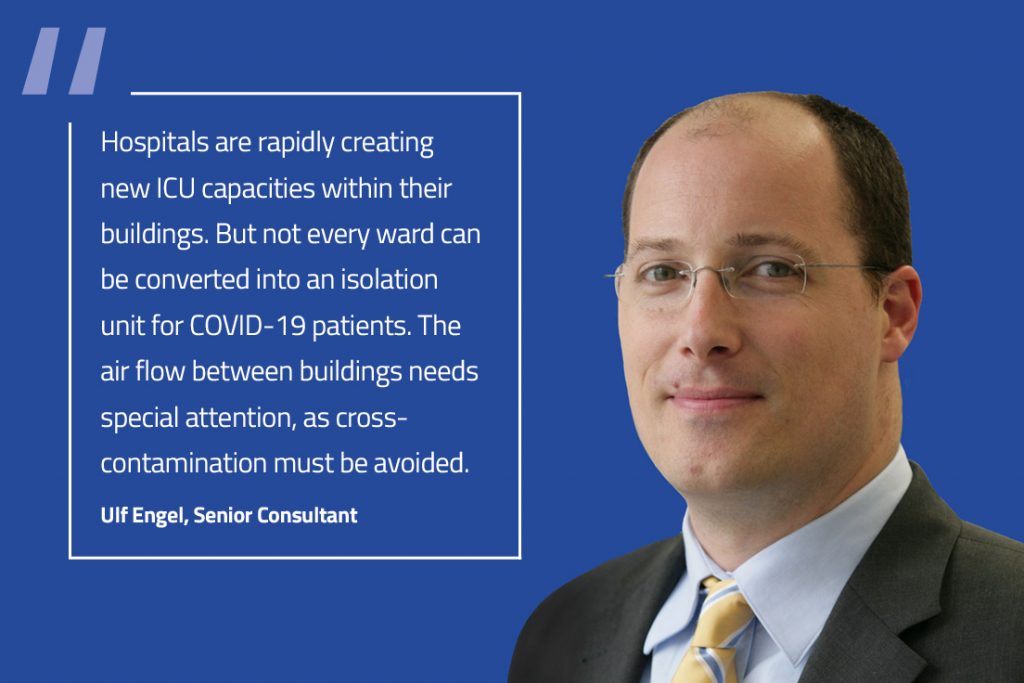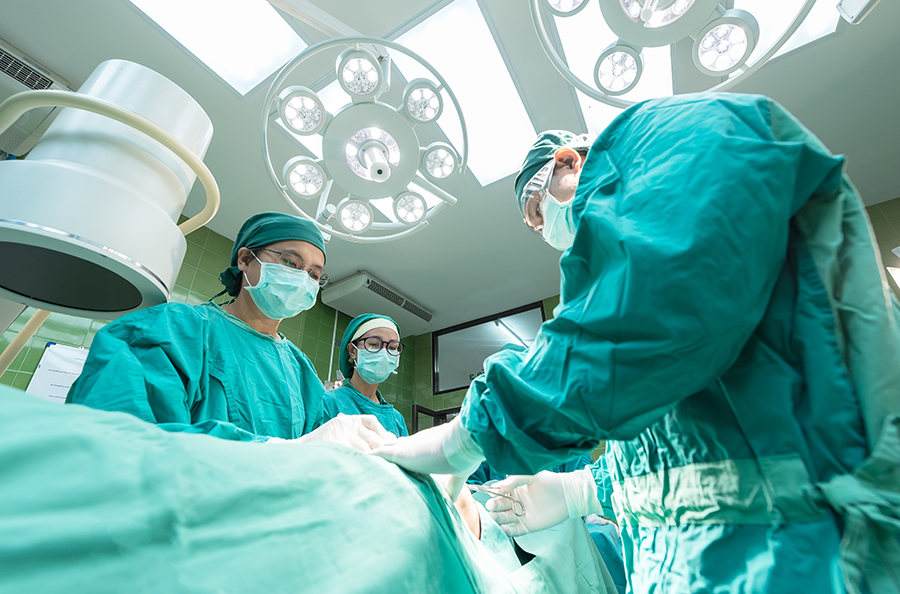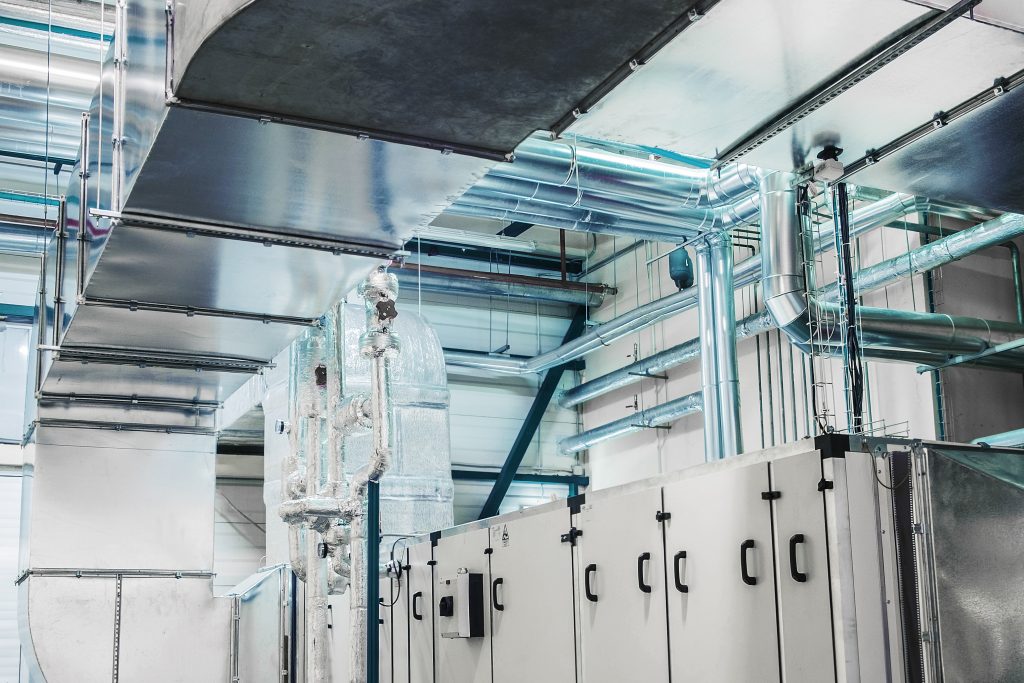
Hospitals around the world are currently making every effort to create new capacities for intensive care patients. But not every ward is suitable for this. Hospital managers should exercise special caution to prevent contamination of the air in other areas of the hospital. Ulf Engel, expert for technical building management and Senior Consultant at TA Europe, explains in an interview what is important in detail.
Mr. Engel, the management of many hospitals is currently under pressure. Due to the increasing number of cases of new infections in Germany, the Minister of Health has called for the creation of additional intensive care units for corona patients. At the same time, these wards should be safe. You recommend that special attention should be paid to the topic of air circulation. Why?
Ulf Engel: The most important goal at present is to prevent the viruses from spreading further. There are a large number of hygiene regulations here, which the hospital operators themselves are well aware of. However, one area that requires special attention is indeed the ventilation of the rooms, as the risk of germ transmission is very high here. It is important to take a close look at the airflow between buildings – especially if existing rooms are now being converted. A simple conversion of a former operating theatre into an isolation ward, for example, could become problematic.

Why? What difficulties could arise here?
Engel: Basically, a distinction is made in hospitals between different classes of rooms with different requirements for low germ counts. For hygienic reasons, the airflow between rooms within a functional unit may only occur in the direction of rooms with higher requirements after those with lower requirements. Airlocks are generally to be installed between different room classes. Nowadays, for example, bed areas and functional areas are arranged in different parts of the building. Care must be taken to ensure that the ventilation and air conditioning systems (AHUs) only supply independent functional areas, e.g. either the operating theatre area or wards – and not mixed operation.
These are very clear rules. What needs to be considered?
Engel: Well, it is permissible for the supply areas of the air conditioning systems to be operated in recirculation mode if the exhaust air from the same room or the same room group, for example operating theatre functional units, is used. If the function of a room or an entire ward is now changed without taking the air circulation into account, it becomes problematic.
This means that rules on how the air has to circulate could be violated if a former operating area is quickly converted into an isolation ward, for example?
Engel: Yes – but that is exactly what must not happen. To stay with the example of the operating area: Here, there are usually higher demands on the room air. But it is possible that the air from this area will flow into one with lower requirements. If corona patients are now lying in the former operating theatre area and the air from this area is transferred to a normal hospital ward, cross-contamination must be avoided.

What recommendations can you, as a building services engineer, give to the managers of clinics who now have to create additional wards for corona patients in a hurry?
Engel: I cannot make a general recommendation for all, because the ventilation systems are not designed according to the same patterns. In principle, however, it is essential to ensure that the AHUs are safe. They must, therefore, be checked with regard to the questions mentioned above. The management of the clinics should proactively consult the ventilation experts during conversions, and they must make sure that the ventilation is modified appropriately and professionally. In doing so, the routing of the air ducts must also be checked. These are subject to higher requirements with regard to tightness but are not airtight. They must be additionally sealed so that no contamination can occur in recirculation mode via supply air ducts which are at overpressure if the ducts lead through external areas.

Ulf Engel is an expert in technical (MEP) building services and in technical property management. He has more than 20 years of experience advising operators and ensuring that technical services and infrastructural property management are executed with best practice and excellence. Learn more about Ulf here.


